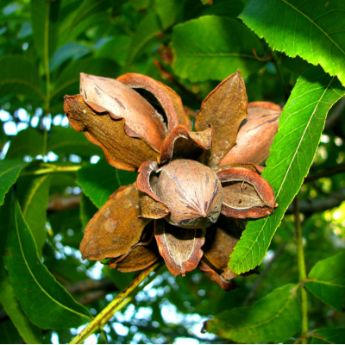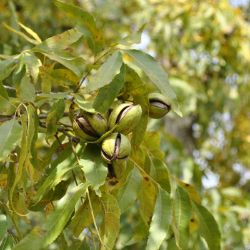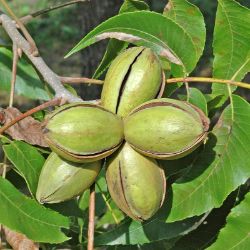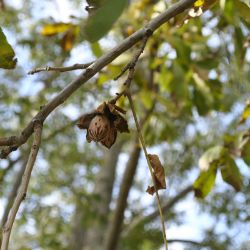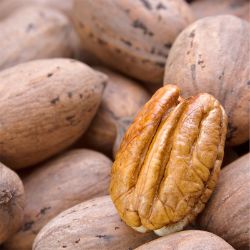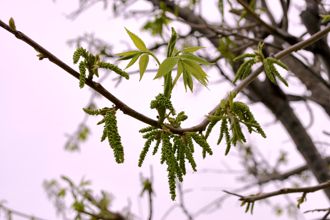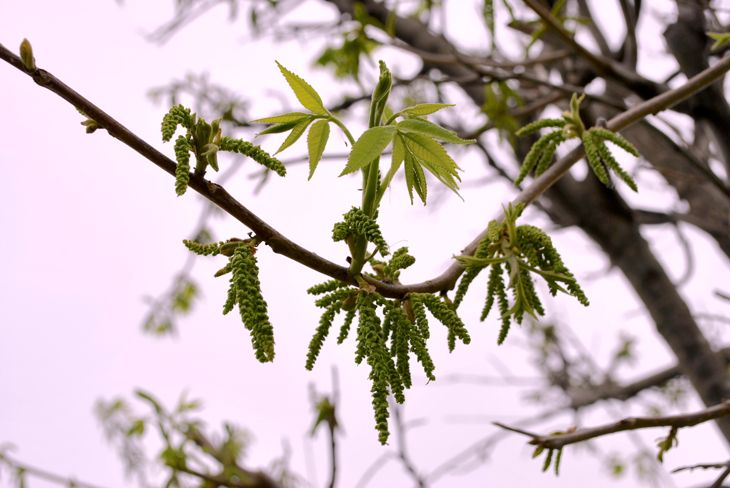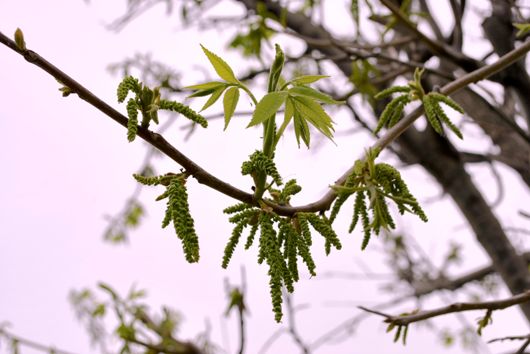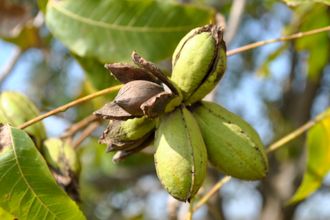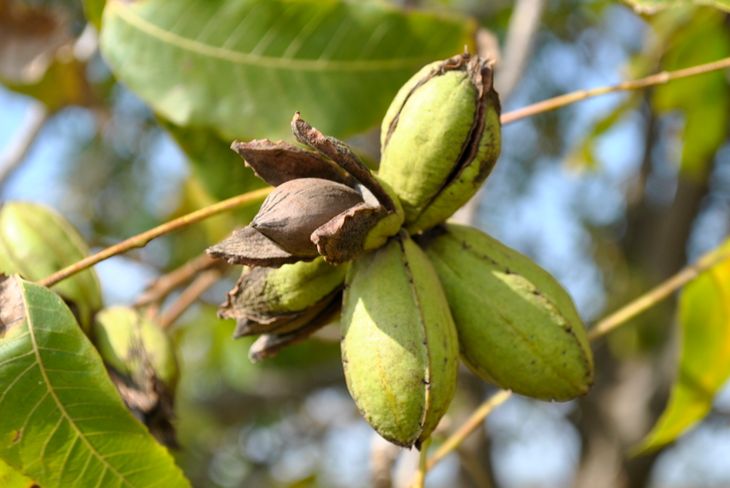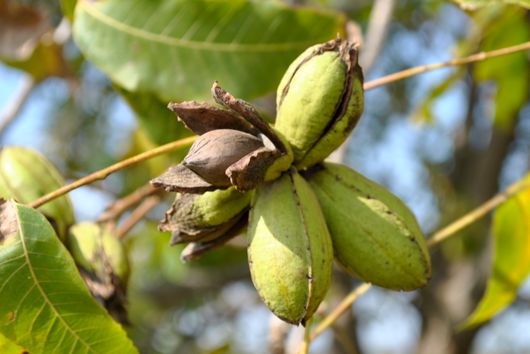Pecan Trees
Pecan Trees Buyer's Guide
Pecan trees (Carya illinoinensis) are stately shade trees that mature to produce bountiful crops of nuts, prized for their flavor. Here you will find a fine selection of pecan tree varieties, as well as closely related Hickory nut trees (Carya laciniosa). These trees thrive in their natural habitat along and around the Mississippi River and the broad plains of the Midwest – and other places like California, Florida, and Texas, where days are long and warm during the growing season. There are also a few cold-hardier varieties to choose from that are still productive further north. Growing your own pecan tree is an affordable way to bring beauty to your landscape and to enjoy nuts that will enhance the flavor of your food, while providing important nutrients for your diet. These nuts are an excellent natural source of antioxidants, protein, unsaturated fats and more. And, since these trees can continue to bear even when over a century old, you’ll enjoy homegrown nuts for generations.
To ensure your growing success and satisfaction, there are a few things to consider when you buy a pecan tree.
Zone Compatibility
Your climate plays an important role in whether a pecan tree will be successful. Make sure the hardiness zone range of the tree you choose includes your area.
- Pecan trees are heat-tolerant and typically grow well in the warmer climates of the South and West (Zones 7-9).
- We also offer some varieties that are hardy enough be grown successfully in cooler climates as far north as the upper Midwest (Zones 5-6).
- Most importantly, pecan trees rely on summer heat and long growing seasons for nuts to mature and fill-in.
Proper Pollination
Pollination by a different pecan variety is key to the success of many pecan trees. Most of our pecan trees require pollination by a compatible variety for successful kernel growth and production. Inadequate pollination is a common reason why some pecan trees produce poorly or don’t bear nuts at all. Make sure you check our descriptions to see which pollinating varieties our experts recommend.
Self-pollinating Pecan Trees are ideal if you don’t have enough growing space to plant a second variety. If you do have room, we always recommend planting another compatible variety for optimum pecan production.
Note that pecan tree pollination works differently from other types of edibles. Typically, pecan trees bloom and shed pollen at different times: some shed pollen first and are receptive of pollen later (“Type I”) and others bloom first and shed pollen later (“Type II”). It is highly recommended you plant at least one of each type, as recommended, for adequate cross pollination.
Mature Tree Size
Pecan trees grow to be rather large. Depending on the variety you choose, they will be about 75' tall and wide when mature. Make sure you have adequate space available for your choice.

